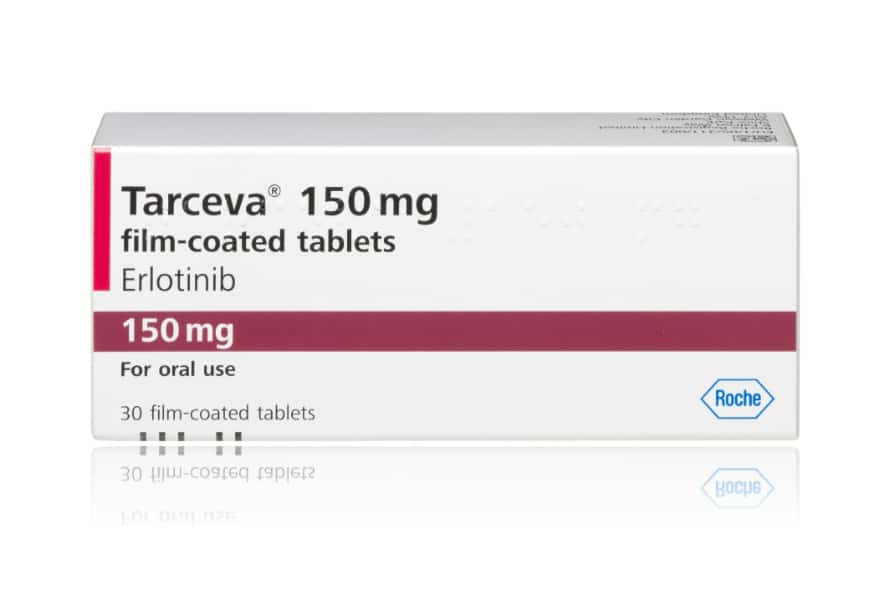
Roche: NICE guidance ‘perverse’
pharmafile | February 4, 2014 | News story | Sales and Marketing | NHS, NICE, NSCLC, Roche, Tarceva
Roche has poured scorn on NICE’s ‘perverse’ recommendation that its EGFR-TK inhibitor Tarceva should no longer be given to NHS patients with relapsed non-small cell lung cancer (NSCLC).
In newly-updated draft guidance put out for consultation today, NICE says Tarceva (erlotinib) in this second-line setting no longer meets its criteria for clinical and cost-effectiveness.
In a strongly-worded statement, Roche retorted: “The decision will set lung cancer care in England and Wales backwards and over 1,000 patients a year will be left without an active treatment option after their first-line therapy has failed, while patients in Scotland and the rest of Europe continue to benefit from erlotinib.”
The manufacturer insists it is ‘perverse’ that the guidance means only docetaxel chemotherapy would be available – saying it is a higher cost option because it has to be given intravenously in hospital rather than orally at home.
Roche has until 24 February formally to put forward its objections, and NICE’s final decision is expected in June.
NICE chief executive Sir Andrew Dillon explained: “When we update recommendations, it is driven by changes in the evidence, as we have to be confident that the benefits that drugs offer patients really do justify what the NHS will have to pay for them.”
Around 20,000 people are diagnosed with NSCLC in England each year and NICE has already recommended Tarceva and AstraZeneca’s Iressa (gefitinib), which is in the same class, as first-line treatments in the EGFR-TK mutation-positive population.
But the drugs cost watchdog insists that clinical practice has changed since its original guidance – recommending Tarceva as an alternative to docetaxel after prior chemotherapy – was made.
NSCLC is now tested for EGFR-TK mutation status at diagnosis before first-line therapy is selected.
“However, clinical specialists told the independent committee that in clinical practice, where this group of patients have received erlotinib and gefitinib as first-line treatment, it is unlikely that they would be re-treated with a EGFR-TK inhibitor as part of second-line treatment because of reduced sensitivity of the tumour to these drugs,” NICE said in a statement.
But Roche says that Tarceva is used to treat 60% of patients receiving active anti-cancer therapy for relapsed NSCLC, and argues that many patients will be too sick to tolerate docetaxel.
“This will effectively leave these less fit patients with no active treatment option to fight their cancer and goes against NHS England’s policy which states that no patient will be without access to cancer treatment,” Roche goes on.
The specialists also told NICE that a small population receive a delayed diagnosis of mutation status and need immediate treatment with non-targeted chemotherapy because their disease is progressing.
NICE cites a trial comparing Tarceva and docetaxel which found Roche’s drug “is less effective at extending progression-free survival in patients whose tumours test negative for the EGFR-TK mutation”.
Sir Andrew points out that the new draft guidance recommends Tarceva and Iressa for patients who have had non-targeted chemotherapy because their tumour type had not been confirmed – and NICE says Tarceva should also be used in people with unknown EGFR-TK mutation status in certain circumstances.
Roche currently has a patient access scheme which reduces the cost of 30 150mg Tarceva tablets from their list price of £1,631.53 to an unknown figure.
AstraZeneca has agreed a flat fee of £12,200 per patient regardless of treatment duration with Iressa – and patients who need less than three months’ worth of the drug incur no charge at all.
Adam Hill
Related Content

AstraZeneca shares results from phase 3 TROPION-Lung01 trial
AstraZeneca has announced results from the phase 3 TROPION-Lung01 trial of AstraZeneca and Daiichi Sankyo’s …

FDA approves Roche’s HPV self-collection screening option
Roche has announced that the US Food and Drug Administration (FDA) has approved its human …

NHS accepts Pfizer’s tafamidis for ATTR-CM treatment
NHS England has announced that it has accepted Pfizer’s drug, tafamidis, for the treatment of …








